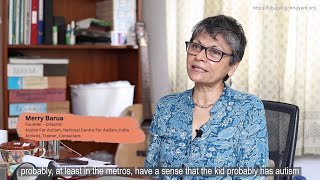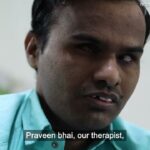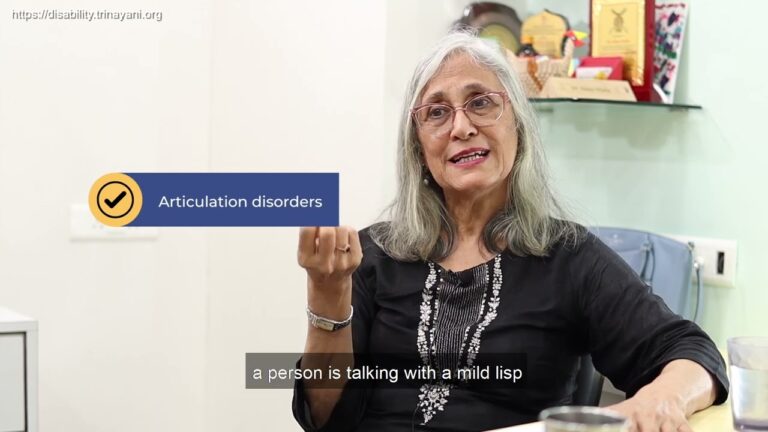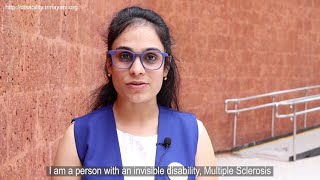Early Identification and Intervention
In this film, hear from Carmo Noronha, Secretary of Bethany Society, Meghalaya, as he shares how early intervention is transforming the lives of children, through the Ummeed Project. We also see field coordinators Ridahun and Kerlinda empowering parents to observe, engage and support their children for the same.
Witness the shift from passive care to active participation, where families, communities, and frontline workers work together to create inclusive, stigma-free spaces for every child. A story of awareness and change from the grassroot levels – this film shows you early intervention in action!
This film takes you into Meghalaya’s heart, from rural Sohra to the city of Shillong, where the early intervention program of Bethany Society is being implemented. Dr. Carmo Noronha, Secretary of Bethany Society, guides us through the vision behind these efforts, while we see field coordinators Kerlinda and Ridahun work directly with families using simple tools and guidance that can track and support children’s early development, enabling them to grow and reach their full potential.
Here, early intervention isn’t about big systems, it’s about the care, support, and learning that begins right at home.
*
The early intervention would be that you’d go into a village, ask the headman, ask you know, local people around if there were any, you know, children with disability.
And then you would assess them and- and- and plan with the families some sort of intervention, so that um they could move on.
But now, what has happened, since we’ve had uhh- training with Ummeed etc, and following the- the WHO model, we are using uh- the guide for monitoring child development.
And the whole emphasis has shifted to getting parents, that means the mother and the father, to observe all children, and to check on them, on the what they call the GMCD (Guide for Monitoring Child Development)
My name is Ridahun Kriam.
I’m a field coordinator here in Nongmensong Project.
I had come here for promotional visit, which is for the child 0 to 3 years, which is for, under the Ummeed Project.
Uhh- here I have come to check the milestone of the child and I used to converse with the parents, with the mother, what- uh- what is the risk factor will be there so that we can refer, in any services what they need.
So I have come here to- for home visit uhh- every uhh- month, to check the child.
After we do the conversation with the parents, we do give recommendation to the child according to their months, from this book.
According to this book, there is according to the months of the child, like see 2 months to 4 months, then we have 8 months to 10 months and the older child also we can have, up to, have up to 35 to 36 month.
So according from the, what the child age for the child months, we give the- this recommendation for the parents, so that parent will start playing with the child, then suppose the child if -uh delay in speech or delay in anything, grabs and all, so after giving this recommendation, after one month, we can come again and check the child, what the child have learned.
So this is the activity that we are doing with the parents.
It’s actually asking parents questions, it’s training parents to observe their children, and if they are typical, then at 3, they move on to the Anganwadi, etc.
Earlier, they would automatically go into the Anganwadi, but children at risk wouldn’t go.
So what has happened now is that children at risk are identified very early and so intervention can start very early.
And so as after the GMCD training, then we have our own field workers, they do the 6 month child development aid program, which is focusing specifically on children with disability or children who are at risk between 0 to 3 umm- and to get them ready, say it’s a school readiness program, it’s, you know, all the early intervention strategies, so that they go into school.
And they get- they get into school and they get into the habit of coming together, etc.
So this is the change.
And what is happening then is that over the next year or two, we are going to set up six of these early intervention centres for children at risk in rural areas across four districts as a pilot.
And now what has happened is that the government under its ECD mission are using Ummeed and our trainers, to train 5000 frontline workers ,to do this GMCD on all their children.
So in the next five years, hopefully two and a half lakh children would have gone through this GMCD and identify children at risk, and then hopefully children at risk will also be integrated into the Anganwadis.
In rural areas, uh- children, they play with everyone.
And if a child is playful, they can come and play along.
There is no problem, there is no uh- uh- stigma- uh- stigmatisation from other children.
And also for adults, if they wish to be with other people, they can join and be with the community, be with the people, be with the crowd.
And also, if they wish to participate in any uh- program, they are always welcome and there is no- uh- discrimination among the people in the community.
That als- that is also another good point from our community.
And another thing which have contribute to that, is the family.
If the family encourage their child or their- their son or daughters to be outside with other children, mean like, there is no problem with this particular kids to go out and play with their peers in the neighbourhood.
Anganwadi, Bethany Society, Carmo Noronha, child development, child milestones, children with disabilities, community support, disability awareness, early childhood care, early identification, early intervention, family empowerment, frontline workers, GMCD, Guide for Monitoring Child Development, inclusion, inclusive education, Meghalaya, Nongmensong Project, parenting, Ridahun Kriam, rural healthcare, rural India, school readiness, Ummeed Project, Ummeed trainers
Dive Deeper: More on Disability
Learn about the most common inquiries surrounding disability, education, legislation, accessibility, employment and other sectors related to disability.


Playlist
Access & Inclusion


Playlist
Adaptive Sports


Playlist
Alternative Communication Methods


Playlist
Autism & Neurodiversity


Playlist
Blindness & Adaptations


Playlist






